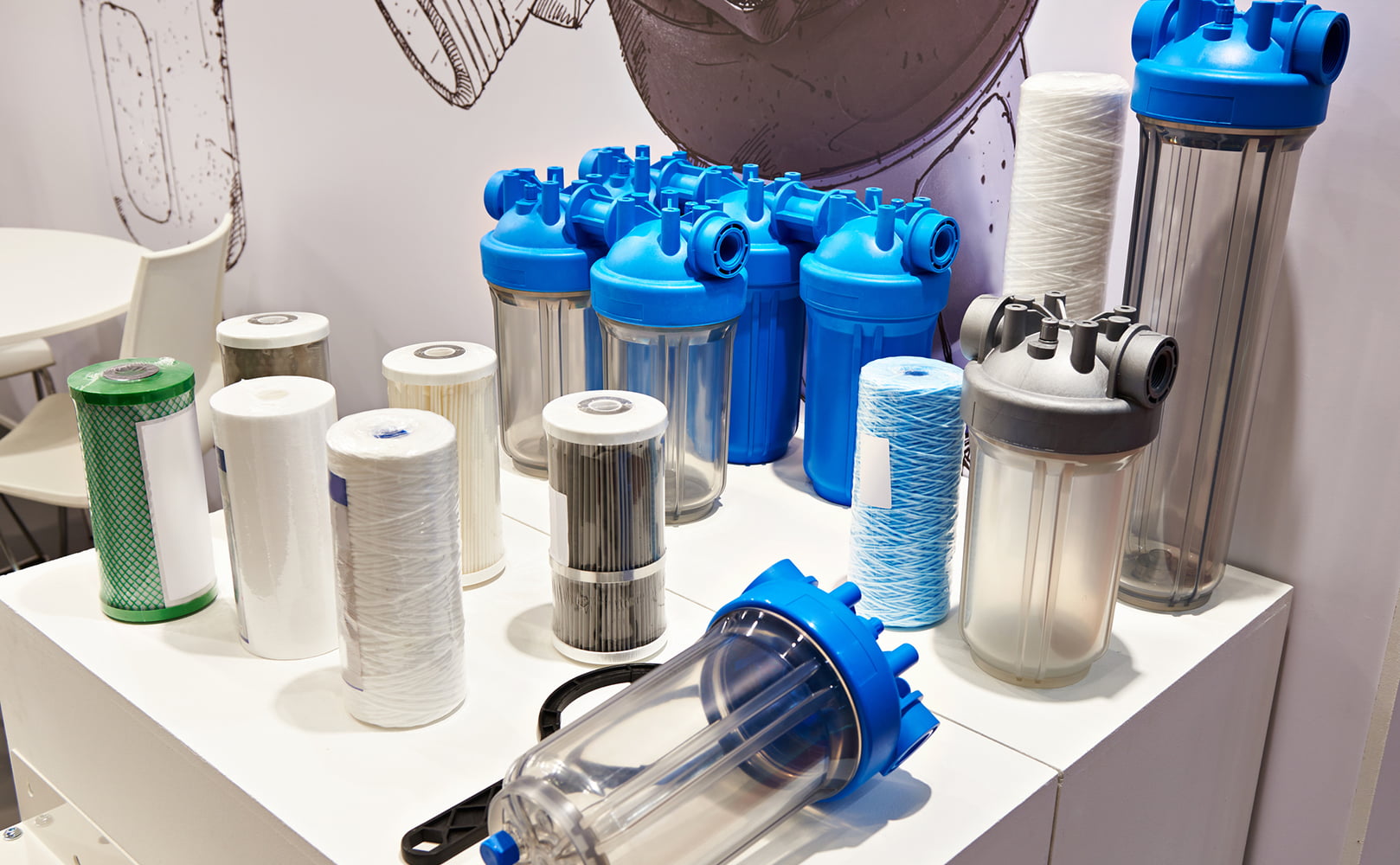Do I Need a Sediment Filter for City Water? Find Out Now!
Written by: Alexandra Uta // Last Updated: Apr 18, 2023
This page may contain affiliate links. If you buy a product or service through such a link we earn a commission at no extra cost to you. Learn more.
Using sediment filters helps to remove sediment and other dirt from water before it can cause damage.
Sediment, like rust, dust, debris, or sand, can cause clogging and other issues, so removing it before it touches your pressure tank, washing machine, or other water-using appliances is vital. In fact, doing so can save you from future repairs and constant maintenance.
What’s more, surely you’re not into sediment-laden water, are you? Foul water looks unsightly and may have an unpleasant odor and off-taste. Therefore, a sediment filter seems like a must when it comes to enjoying pure and refreshing water.
But, what if you’re using city water, you may ask. It’s supposedly already filtered and cleaned by the municipality. So, do you need a sediment filter for city water?
Key Takeaways
- A sediment filter can be useful even if you have city water.
- Whether or not you need a sediment filter depends on the water’s quality. Tip: Have if tested if you are unsure.
- Sediment filters trap and remove harmful particles, like rust, dust, or debris, from water and protect your plumbing and water-using equipment, like washing machine and water heater. Plus, they improve water aesthetics.
Do I Need a Sediment Filter for City Water?
It depends.
For the most part, sediment filters are used for well water. This is because municipalities or private water utilities already treat city water, meaning it shouldn’t contain sediment. And if it does, it’ll be only small amounts.
That said, installing a sediment filter for city water can be smart.
A sediment filter acts as a defense mechanism against contaminants and defends your home’s entire water system.
With a filter installed, you have complete peace of mind about the condition of your pipes, the washing machine, dishwater, heater, and other water treatment equipment. Simply put, a sediment filter prevents clogging and other damage due to dirt being present in your water supply. Less maintenance and fewer repairs save you money.
What’s a Sediment Filter and What Does It Do?
Sediment filters trap and remove sediment from water. To put it differently, a sediment filter defends your water system from floating particles.
Sediments shouldn’t be taken lightly. They can do some serious damage. For example, particles can foul drinking water, clog household plumbing, and reduce the lifespan of appliances.
Types of Sediment Water Filters
Now, there are many types of sediment filters for you to choose from, from surface filters to depth filters to spin-down filters and multi-gradient filters.
Let’s take a closer look at some of them.
Surface Filters
Thanks to their large surface area and folded design, surface filters, also known as pleated cartridge filters, can trap high amounts of mostly coarse particles, like sand, dust, and rust, and prevent them from remaining into your water.
The large surface also prevents decreasing water pressure, which is really useful.
Pleated filters are made of a thin polyester sheet or polypropylene (PP).
Depth Filters
Depth filters come in three types:
- String-wound
- Melt-blown
- Spun
String-Wound Filters
String-wound filters have a solid core wrapped in polypropylene, polyester, or cotton string. They’re effective against large and small sediment.
Melt-Blown Filters
Unlike string-wound filters, which can be made of different materials, melt-blown filters are almost entirely made from PP. As filters, they’re ideal for removing even the smallest of particles, ensuring maximum sediment filtration.
Melt-blown filters can remove extra fine particles, some will even remove particles smaller than 5 microns.
Spun Cartridge Filters
Spun cartridge filters are usually made of melted PP, too. They have many, many layers that help them block sediments from fouling your water.
The outermost layer has a higher micron level and is more porous, ideal for catching larger particles like sand. However, as the water passes through the filter’s layers, they become less porous. The result? Spun cartridge filters can filter out even the tiniest sediment.
Spin-Down/Centrifugal Filters
Available in different filtration sizes, ranging from 20 up to 1,000 microns, spin-down and centrifugal filters are easily cleanable, making them a perfect whole house filtration solution.
Spin-down filters use gravity to filter sediment out; centrifugal filters use centrifugal force (directing sediment outwards where the particulates get caught in a mesh).
If they become clogged, you can renew a spin-down filter by flushing its valve. With centrifugal filters, all you need to do is clean their mesh. Yep. It’s that simple.
Also, water pressure is not an issue with either type since both work with very high pressure of up to 150 psi, making it unlikely for you to see a drop in the water flow rate around your home.
Backwashing Filter Systems
Last to mention are backwashing sediment filters. They trap sediment inside their large tank before flushing them out during the backwash cycle.
If you have any thoughts about the question, do I need a sediment filter for city water, please don’t hesitate to leave a comment below!
Information provided on BOS is for educational purposes only. The products and services we review may not be right for your individual circumstances.
We adhere to strict editorial guidelines. Rest assured, the opinions expressed have not been provided, reviewed, or otherwise endorsed by our partners – they are unbiased, independent, and the author’s alone. Our licensed experts fact-check all content for accuracy. It is accurate as of the date posted and to the best of our knowledge.


